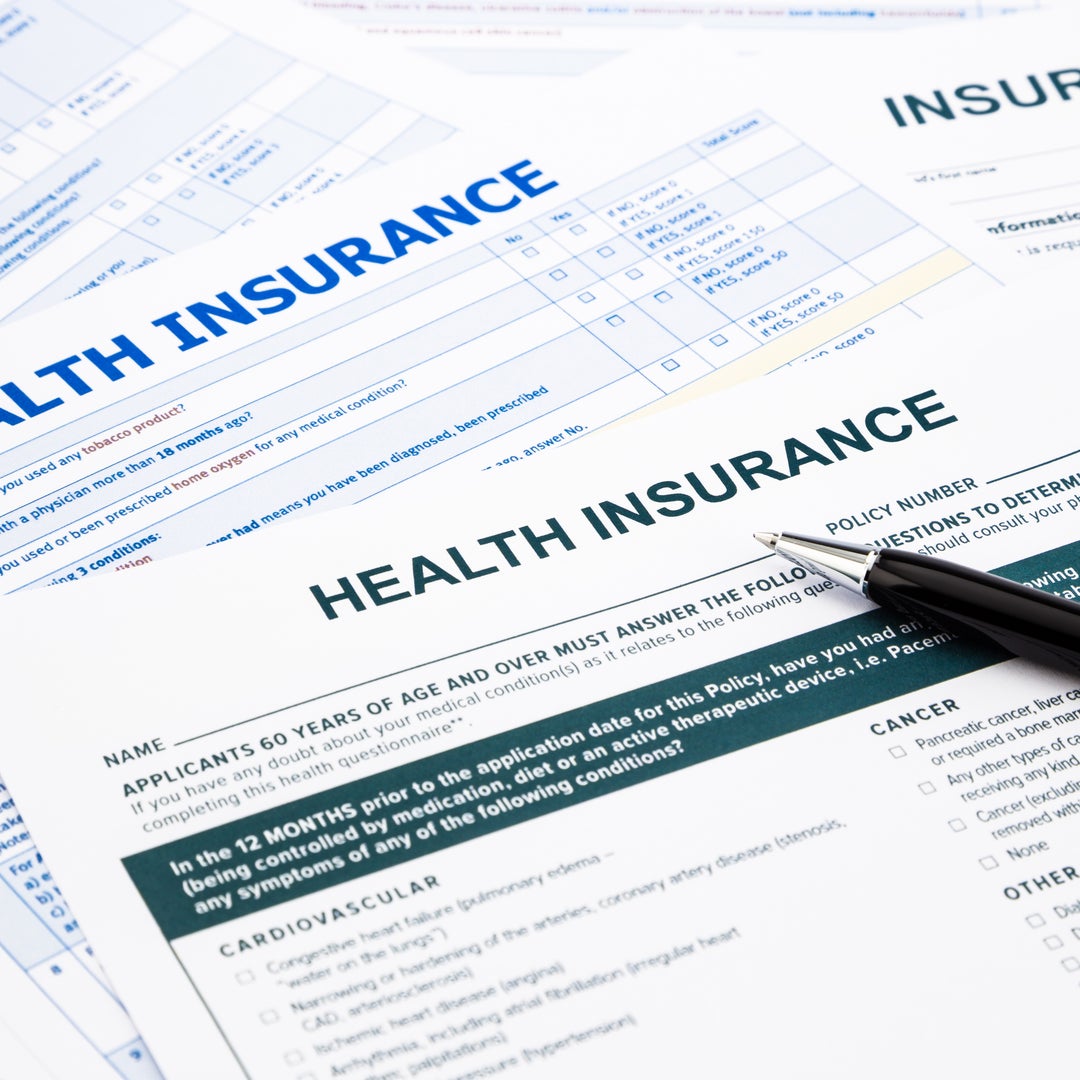What Happens to My Health Insurance If I Get Laid Off?

More than 50 percent of Americans get their health insurance through their employer.
But just because you’ve been laid off doesn’t mean you won’t be able to get the healthcare services you and your family need. Here’s what happens to your health insurance when you get laid off and how you can keep your current insurance or find an alternative.
What happens to my health insurance when I get laid off?
Depending on your plan, you may keep your current health insurance benefits through the end of the month. Make sure to check that you’ve been laid off versus being furloughed. Those who are furloughed remain employees and may retain access to their benefits, though will still be responsible for any premiums, copays or deductibles.
What health insurance options do I have?
COBRA
An acronym for the Consolidated Omnibus Budget Reconciliation Act, COBRA may allow you to maintain your current health insurance for up to 36 months as long as your company had at least 20 employees. You must opt into COBRA coverage within 60 days of your layoff. Coverage is generally retroactive, meaning if will apply back to the date you lost your benefits regardless of when you opt in.
If your company covered any of your health insurance premiums in the past, you’ll now be responsible for footing the entire bill. Most employers cover about 82 percent of the premiums for single plans and 70 percent of premiums for family plans. Average annual employer-sponsored premiums run about $7,200 for individuals and $20,500 for families. COBRA rates may also include a 2 percent administrative fee on top of the total premium cost.
While they may come at a steep price, COBRA plans have the benefit of letting you maintain your current doctors and covered prescriptions. And unlike if you switch plans, you will continue with your previous insurance deductible and out-of-pocket maximum contributions for the calendar year.
Note that if your company has gone out of business, you likely won’t be able to access your old health plan anymore.
Affordable Care Act
Depending on your financial and medical situations, it may make sense to find an alternative plan on the Affordable Care Act (ACA) marketplace. Because loss of a job is a qualifying life event, you have access to a marketplace plan regardless of when you’re laid off.
Average ACA plan costs are $331 a month for the lowest tier, and given your lack of income, you may be eligible for discounted rates. The marketplace will also help you determine if you qualify for low-cost or free programs, like Medicaid or Children’s Health Insurance Plan (CHIP).
Keep in mind that if you switch into an ACA plan, you’ll have to start over with your deductible and out-of-pocket maximum for the year. Calculate the expense of this when deciding how to continue your health insurance coverage. You may also need to replace your current doctors (or pay out-of-network rates) or change current medications to alternatives covered by your new plan.
How can I pay for my health insurance if I get laid off?
If you get laid off, you don’t necessarily have to pay the full costs of your health insurance plan out of your pocket. Here are a couple other options.
Health Savings Account (HSA)
If you’ve previously been in a high-deductible health plan (HDHP), you may have established a health savings account (HSA) in the past. As with 401(k) retirement accounts, you retain ownership of and access to your HSA even if you’re laid off. And unlike flexible spending accounts (FSAs), HSAs can be used to cover healthcare premiums with tax-free money.
If you have invested parts of your HSA, though, keep in mind that, depending on the prevailing economic circumstance, you might end up selling some assets at a loss. That said, HSAs can offer a financial safety net when it comes to paying for large medical expenses.
Individual Retirement Account (IRA)
Although they are accounts designed to help you invest for retirement, you may be able to use funds from your Individual Retirement Account (IRA) for healthcare expenses.
If you have a Roth IRA, you can actually withdraw any contributions you’ve made at any time without paying a penalty or taxes. The IRS also allows penalty-free withdrawals from traditional IRAs to pay medical expenses that are not reimbursed by health insurance and exceed 10 percent of your adjusted gross income for the year (if you’re under 65). If you have had the Roth IRA open for more than five years, you can also withdraw earnings on your investment for medical expenses penalty- and tax-free if they meet the criteria above.
In addition, if you lose your job because of the coronavirus, a financial hardship withdrawal may enable you to take up to $100,000 out of your IRA without a 10-percent penalty. But you’ll have to pay your IRA back within three years to avoid paying taxes or penalties on the withdrawal.
Keep in mind that if you raid your IRA, you can miss out on years of potential growth and may be withdrawing when investments are at lower prices than you paid for them.
The bottom line
You always hope not to have to use health insurance, but even during normal situations, it’s important to maintain access to some kind of health insurance when you lose your job.
This material has been presented for informational and educational purposes only. The views expressed in the articles above are generalized and may not be appropriate for all investors. The information contained in this article should not be construed as, and may not be used in connection with, an offer to sell, or a solicitation of an offer to buy or hold, an interest in any security or investment product. There is no guarantee that past performance will recur or result in a positive outcome. Carefully consider your financial situation, including investment objective, time horizon, risk tolerance, and fees prior to making any investment decisions. No level of diversification or asset allocation can ensure profits or guarantee against losses. Article contributors are not affiliated with Acorns Advisers, LLC. and do not provide investment advice to Acorns’ clients. Acorns is not engaged in rendering tax, legal or accounting advice. Please consult a qualified professional for this type of service.








